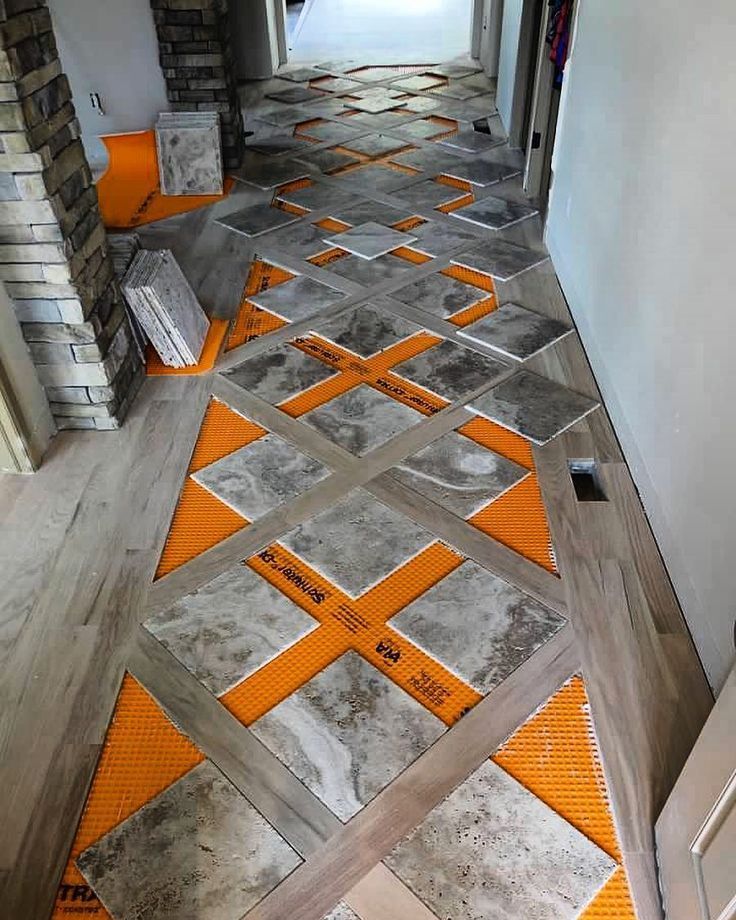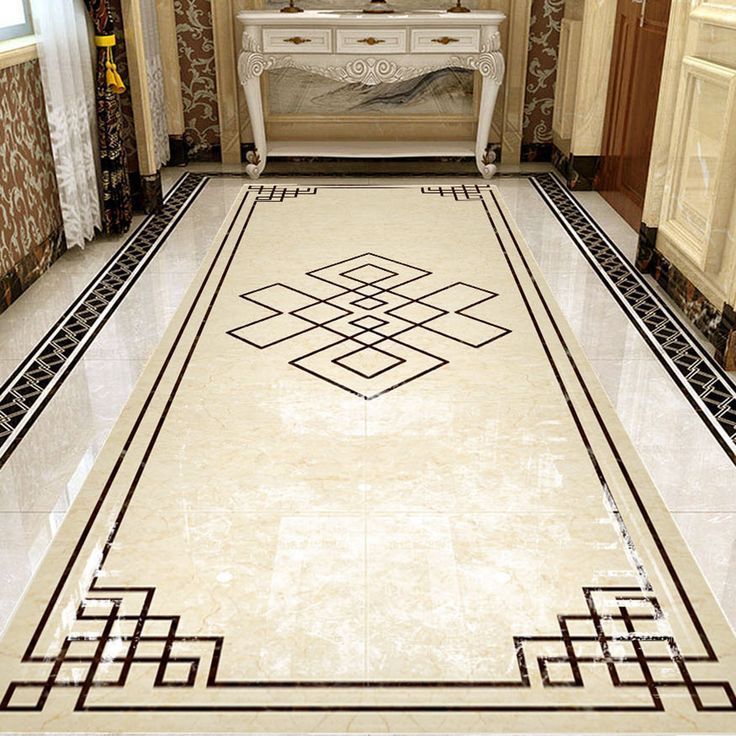Soundproof Flooring Solutions
Living in a bustling city like San Francisco means noise is a constant companion. Whether it's traffic, neighbors, or the hum of urban life, unwanted sound can disrupt your peace and comfort.
At San Francisco Flooring Company, we offer specialized soundproof flooring solutions designed to create quieter, more peaceful spaces. Our acoustic flooring options effectively reduce noise transmission between floors while maintaining the stylish appearance you desire for your home or business.
We understand the unique challenges of city living and have developed a range of soundproofing materials and installation techniques. Our team combines expertise in both flooring and acoustic technology to provide tailored solutions that meet your specific needs and budget. Contact us today to learn how we can help transform your noisy space into a tranquil retreat.
Our Soundproof Flooring Services
We provide comprehensive soundproofing solutions for floors in both homes and businesses throughout San Francisco. Our expert team uses advanced materials and techniques to create quiet, peaceful environments tailored to your specific needs.
Residential Soundproof Flooring Installation
Our residential soundproof flooring solutions help create peaceful home environments by reducing noise transfer between floors. We understand that apartment living or multi-story homes can create sound challenges, which is why we offer customized installations that fit your specific needs. We install several types of soundproof flooring options:
- Acoustic underlayment systems that go beneath your chosen floor covering
- Mass-loaded vinyl barriers for maximum sound blockage
- Floating floor systems that physically separate your floor from the structure
- Cork and rubber composites that absorb impact noise
Our installation process is clean and efficient, minimizing disruption to your daily life. We work with existing floors or can install completely new systems depending on your requirements and budget constraints. Each installation includes proper sealing around edges and penetrations to prevent sound leakage. Our soundproof floors not only reduce noise but also add thermal insulation, potentially lowering your energy bills.
Commercial Soundproof Flooring Solutions
We specialize in commercial soundproofing that meets the unique demands of businesses, from offices to restaurants to healthcare facilities. Our raised access flooring systems combine soundproofing with practical workspace solutions that accommodate cables and other infrastructure.
Our commercial installations comply with all building codes and OSHA requirements for noise reduction. We work during off-hours to minimize business disruption and can complete projects in phases if needed. Our solutions integrate seamlessly with other building systems including HVAC and electrical.
Custom Soundproof Flooring Options
We believe soundproofing should complement your design vision, not compromise it. Our custom options let you achieve both acoustic performance and aesthetic goals without sacrifice. Our design consultants help you select from:
- Engineered hardwoods with built-in acoustic properties
- Luxury vinyl planks with enhanced sound absorption
- Specialty acoustic carpets for maximum comfort and sound control
- Eco-friendly options made from recycled or sustainable materials
Every custom project begins with a thorough acoustic assessment to identify specific noise issues. We measure current sound transmission and develop targeted solutions based on real data. Our team can match existing décor or help create entirely new design schemes that incorporate soundproofing technology invisibly. We source materials from leading manufacturers who specialize in acoustic performance without compromising durability or appearance.
The Installation Process
Our team at San Francisco Flooring Company follows a methodical approach to deliver quality results for your home or business.

1. Consultation and Floor Assessment
We begin with a thorough consultation to understand your specific needs. Our experts visit your location to assess the current flooring condition, measure the space, and identify potential challenges. During this visit, we evaluate the subfloor structure and test for moisture levels that could affect installation.
We also measure the ambient noise levels to determine the degree of soundproofing needed. This helps us recommend the most appropriate materials for your situation.
The assessment includes checking for uneven areas that might need leveling before installation begins. We examine doorways, transitions to other rooms, and height limitations to ensure a seamless integration with existing structures.
Our team will discuss your lifestyle needs, budget constraints, and aesthetic preferences during this initial phase to create a customized plan.
2. Choosing the Right Soundproof Flooring
Selecting the appropriate soundproof flooring depends on several factors. We offer various options including:
- Cork flooring: Natural sound absorption with a warm feel
- Luxury vinyl with acoustic underlayment: Waterproof and highly durable
- Engineered hardwood with soundproofing layers: Classic look with modern noise reduction
- Carpet with dense padding: Maximum sound absorption for bedrooms and quiet spaces
We'll explain the Impact Insulation Class (IIC) and Sound Transmission Class (STC) ratings of different materials to help you make an informed decision. These ratings measure how effectively materials block impact noise and airborne sound.
Your room's function matters too. For example, home theaters require different soundproofing solutions than bedrooms or home offices. We consider these specific needs when recommending products.
3. Preparing for Installation
Proper preparation ensures successful soundproof flooring installation. We handle all aspects including:
- Removing existing flooring and disposing of it properly
- Cleaning and repairing the subfloor to create a smooth surface
- Addressing any moisture issues with appropriate barriers
- Applying leveling compounds where needed
For optimal soundproofing, we may install isolation barriers between the subfloor and new flooring. This often involves acoustic underlayment materials that absorb vibrations.
We'll coordinate with you about furniture removal and room access. Our team works efficiently to minimize disruption to your daily routine. We also ensure adequate acclimation time for materials like hardwood, which need to adjust to your home's humidity and temperature.
4. Installation Proper
Our installation methods vary based on the chosen flooring type and soundproofing goals. For maximum noise reduction, we often use:
- Floating Floor Systems: These installations don't attach directly to the subfloor, creating an air gap that reduces sound transmission. We carefully install perimeter isolation barriers to prevent sound from traveling through walls.
- Acoustic Underlayment Application: We precisely cut and fit specialized rubber, cork, or fiber underlayments before laying the final flooring. This critical layer absorbs impact noise from footsteps.
- Decoupling Techniques: For severe noise issues, we may use special clips or channels to physically separate floors from the structure, preventing vibration transfer.
All seams are carefully sealed, and expansion gaps are maintained for materials that need to expand and contract. Our technicians pay special attention to connections with walls to prevent sound leakage.
5. Post-Installation Care and Maintenance
Maintaining your new soundproof flooring ensures lasting performance and sound reduction. We provide detailed care instructions specific to your installed materials. Most soundproof floors benefit from regular cleaning with manufacturer-approved products. We recommend soft-bristle brooms or microfiber mops for hard surfaces and regular vacuuming for carpeted areas.
Protect your investment with proper humidity control. Many soundproof floors perform best within specific humidity ranges. We can suggest humidifiers or dehumidifiers if needed. Felt pads under furniture prevent scratches and reduce impact noise. Area rugs in high-traffic zones add another layer of sound absorption while protecting your floors.
Our team remains available after installation to answer maintenance questions or address any concerns that might arise. We typically schedule a follow-up visit to ensure your complete satisfaction with both sound reduction and appearance.
Product Range We Offer
San Francisco Flooring Company offers a variety of soundproof flooring options that balance noise reduction with style and durability. We select materials specifically designed to minimize impact noise and sound transmission.
Luxury Vinyl Tiles
Our luxury vinyl tile (LVT) collection combines excellent sound dampening properties with impressive durability. These tiles feature multiple layers, including a thick acoustic backing that significantly reduces impact noise between floors.
LVT is waterproof and highly resistant to scratches, making it perfect for busy households with children or pets. You'll find it performs exceptionally well in apartments, condos, and multi-story homes where noise control is essential. We carry top brands that offer:
- Sound absorption ratings of STC 50+
- Impact Insulation Class (IIC) ratings of 55+
- Thickness options from 4mm to 8mm
Installation includes a specialized underlayment that enhances the soundproofing capabilities while ensuring a smooth, level finish. Many of our LVT options feature realistic wood and stone appearances that will complement any décor style.

Engineered Hardwood
Our engineered hardwood flooring provides the warmth and beauty of real wood with enhanced sound insulation properties. These floors feature multiple cross-layered construction that naturally absorbs sound.
We source engineered hardwood with cork or rubber underlayment already attached to maximize noise reduction. These pre-attached layers save installation time while ensuring optimal acoustic performance. Key benefits include:
- Natural sound absorption properties
- STC ratings between 50-60
- Available in oak, maple, walnut and exotic species
- Compatible with radiant heating systems
Each engineered hardwood plank undergoes special acoustic treatment during manufacturing. The core layers are designed to trap sound waves instead of allowing them to travel through the floor.

Cork and Rubber Flooring
Our cork and rubber flooring options deliver exceptional performance. These natural materials have inherent cellular structures that trap sound waves and prevent them from traveling.
Cork flooring comes from sustainable harvesting of cork oak trees. Its millions of tiny air cells create a natural cushion that absorbs both footfall noise and airborne sound. It's also naturally antimicrobial and hypoallergenic. Our rubber flooring options include:
- Recycled rubber in various thicknesses
- Custom color blends and patterns
- Commercial-grade durability
- Anti-fatigue properties for standing comfort
Both materials provide thermal insulation along with sound dampening benefits. We recommend these options for music rooms, home theaters, exercise spaces, and any area where maximum sound control is needed.

FAQs About Soundproof Flooring
Our clients regularly ask questions about soundproof flooring options. We've gathered the most common questions to help you better understand your choices and what to expect from our services.
How much does it generally cost to soundproof a floor with professional services?
Soundproofing costs typically range from $5-15 per square foot depending on the methods and materials used. Basic underlayments start around $5 per square foot installed, while comprehensive solutions with floating floors can reach $15 per square foot.
Material quality significantly impacts pricing. Premium acoustic underlayments and mass-loaded vinyl cost more but deliver superior results. Labor costs in San Francisco are higher than national averages, so expect to pay toward the upper end of these ranges for professional installation.
What flooring materials are considered most effective for reducing noise transmission?
Cork flooring excels at noise reduction due to its natural cellular structure that absorbs sound vibrations. It's both eco-friendly and effective at dampening impact noise.
Carpet with thick padding offers excellent sound absorption, particularly for impact noise like footsteps. The thicker the padding, the better the soundproofing.
Luxury vinyl with acoustic underlayment combines water resistance with good sound dampening. Modern engineered hardwood with cork or rubber underlayment provides both aesthetic appeal and noise reduction.
Can existing floors be retrofitted with soundproofing solutions without complete replacement?
Yes, existing floors can often be retrofitted with soundproofing solutions. We can install acoustic underlayment beneath new flooring while keeping your subfloor intact. For hardwood floors, we offer specialized techniques to add soundproofing materials between joists from below if access is available. This preserves your existing floor while improving acoustic performance. Another option is adding mass-loaded vinyl or acoustic mats under area rugs for targeted improvement without structural changes.
What are the comparative advantages of using a specialized soundproofing company versus a general contractor?
Specialized soundproofing companies like ours understand acoustic principles and how sound travels through building materials. We can identify specific noise issues and recommend targeted solutions rather than generic approaches.
We maintain relationships with suppliers of specialized acoustic materials not typically stocked by general contractors. Our technicians receive specific training in sound measurement and mitigation techniques.
General contractors may offer lower initial quotes but often lack the specialized equipment and expertise needed for optimal results in complex soundproofing projects.
How can soundproofing be optimized in multi-story buildings for both ceilings and floors?
In multi-story buildings, we recommend a comprehensive approach addressing both floors and ceilings. Installing resilient channels on ceilings creates air gaps that prevent sound transmission from floors above.
Floating floor systems effectively decouple your floor from the building structure, significantly reducing both impact and airborne noise. Adding acoustic insulation between floor joists complements these measures.
Strategic placement of mass-loaded vinyl on both surfaces can further reduce sound transmission by adding density to lightweight modern construction materials.
